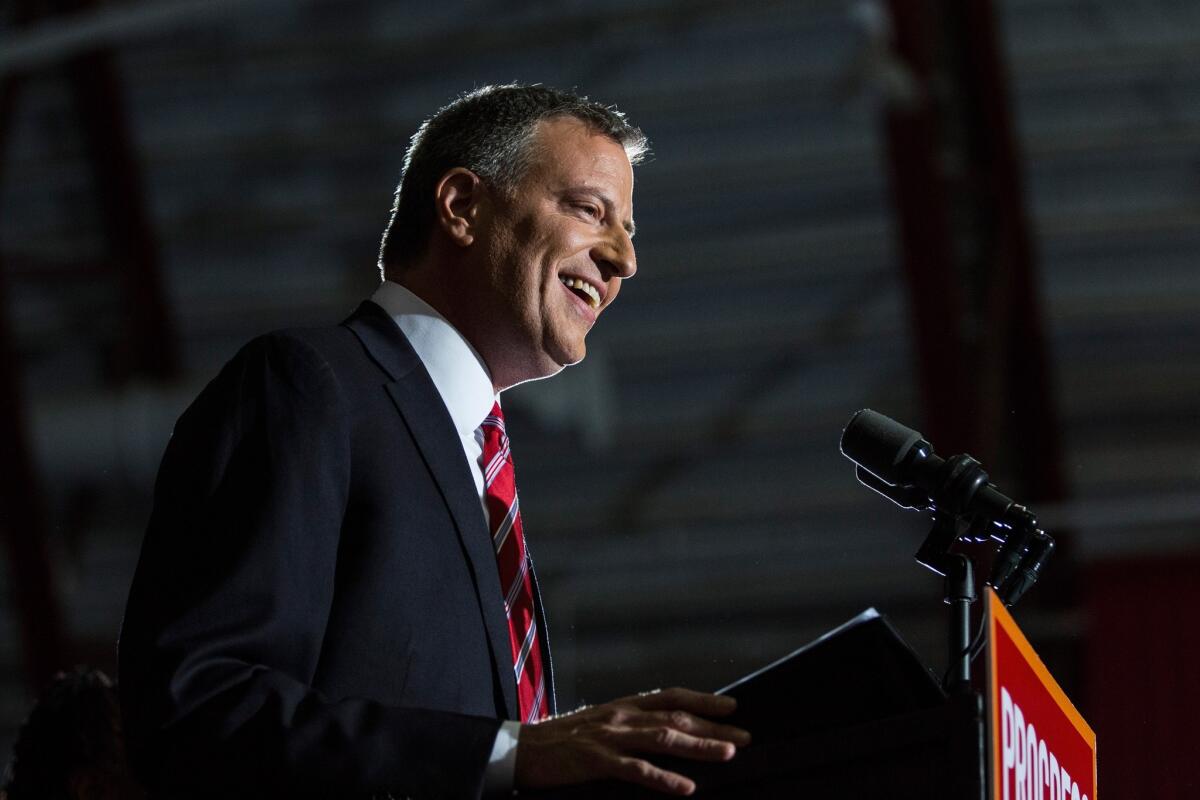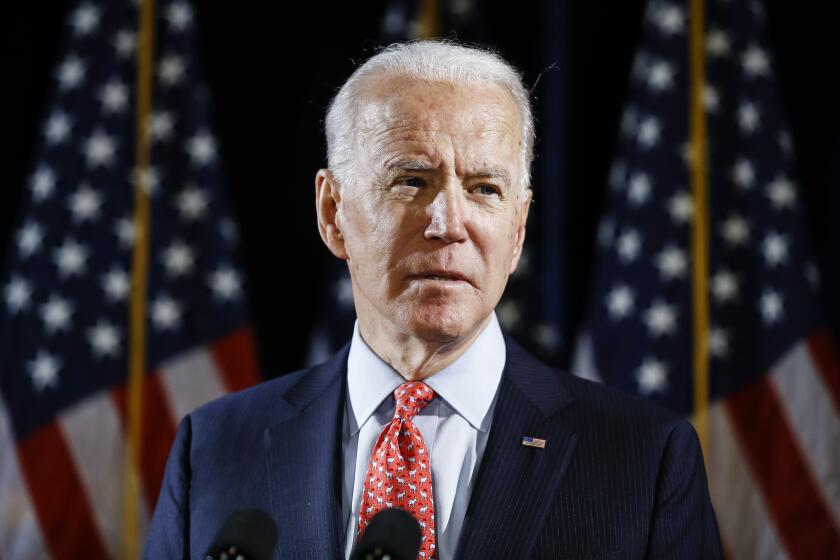New York Mayor Bill de Blasio drops out of 2020 presidential race

- Share via
New York City Mayor Bill de Blasio dropped out of the Democratic presidential race Friday, ending a campaign that barely registered in the polls and faced mockery from many of his hometown constituents.
The mayor made the announcement on MSNBC’s “Morning Joe” show.
“Getting out there, being able to hear people’s concerns, address them with new ideas has been an extraordinary experience,” he said. “But I have to tell you, I feel like I’ve contributed all I can to this primary election and it’s clearly not my time.”
De Blasio’s campaign struggled to gain traction in the crowded field after he announced he was running in May; he brought in 1% support or lower in most polls. His announcement itself was scooped by a 17-year-old who writes a popular politics newsletter, and the New York Post’s cover for De Blasio’s presidential bid debut featured people laughing. The tabloid is owned by Rupert Murdoch, who also owns the Fox News cable network.
The progressive Democrat largely focused his campaign as advocating for the “working people,” showing up at union rallies. He also said that if elected, he would implement an aggressive tax plan.
“This has to be the party that’s not afraid to say out loud we’re going to tax the hell out of the wealthy,” he said in July at the second Democratic debate. De Blasio has an estimated net worth of $2.5 million, according to Forbes, equal to that of Vermont Sen. Bernie Sanders.
De Blasio qualified for the first two Democratic primary debates, but could not meet the higher polling and donor numbers required for the September debate.
The field is down to Joe Biden now that Bernie Sanders ended his presidential campaign. Here is the Democrat heading for a battle with President Trump.
De Blasio easily won his second term as mayor of President Trump’s hometown in 2017. But his presidential bid did not garner much support from his constituents. A Quinnipiac University poll from April, before his announcement, found that 76% of New York City residents said he should not run.
As he campaigned, his approval rating back home appeared to drop: An August poll conducted by Siena College found that De Blasio’s favorability rating in the state was at 26% — five points below Trump’s — and down three points from the college’s June poll.
In a September poll by the Loudonville, N.Y., college, state residents were asked which nominee they would like to see go against Trump. De Blasio received less than 1%. Among New York City residents, his support was at 0%.
De Blasio’s campaign wasn’t met with much interest in early voting states either. In a June Des Moines Register/CNN poll, not one of the 600 Iowans surveyed listed him as first choice for president.
He never attracted massive crowds, drawing modest audiences of a few dozen. Tweets from reporters covering the mayor on the campaign trail showed some of his events drew crowds as small as 15.
Some New Yorkers criticized the mayor for trying to win the role of commander in chief, pointing to issues needing attention in their own city.
The daughter of Eric Garner, a black man who died after then-New York City police Officer Daniel Pantaleo put him in a chokehold in 2014, challenged De Blasio on how he could run for president when he couldn’t help her family. “If you can’t give me answers on Daniel Pantaleo, you can’t give me answers about the free world,” Emerald Garner said on CNN.
At the July debate, protesters in the audience began shouting “Fire Pantaleo!” following De Blasio’s opening remarks. Federal prosecutors had declined to bring charges against the officer, whom the police commissioner fired in August.
De Blasio raised a little more than $1 million for his campaign, according to the Federal Election Commission, a fraction of what most candidates have raised. South Bend, Ind., Mayor Pete Buttigieg, considered a middle-tier candidate, has amassed $25 million.
De Blasio joins New York Sen. Kirsten Gillibrand, Washington Gov. Jay Inslee, Massachusetts Rep. Seth Moulton, former Colorado Gov. John Hickenlooper and California Rep. Eric Swalwell, who have all left the Democratic primary race.
Times staff writer Alexa Díaz in Washington contributed to this report.
More to Read
Get the L.A. Times Politics newsletter
Deeply reported insights into legislation, politics and policy from Sacramento, Washington and beyond. In your inbox three times per week.
You may occasionally receive promotional content from the Los Angeles Times.












